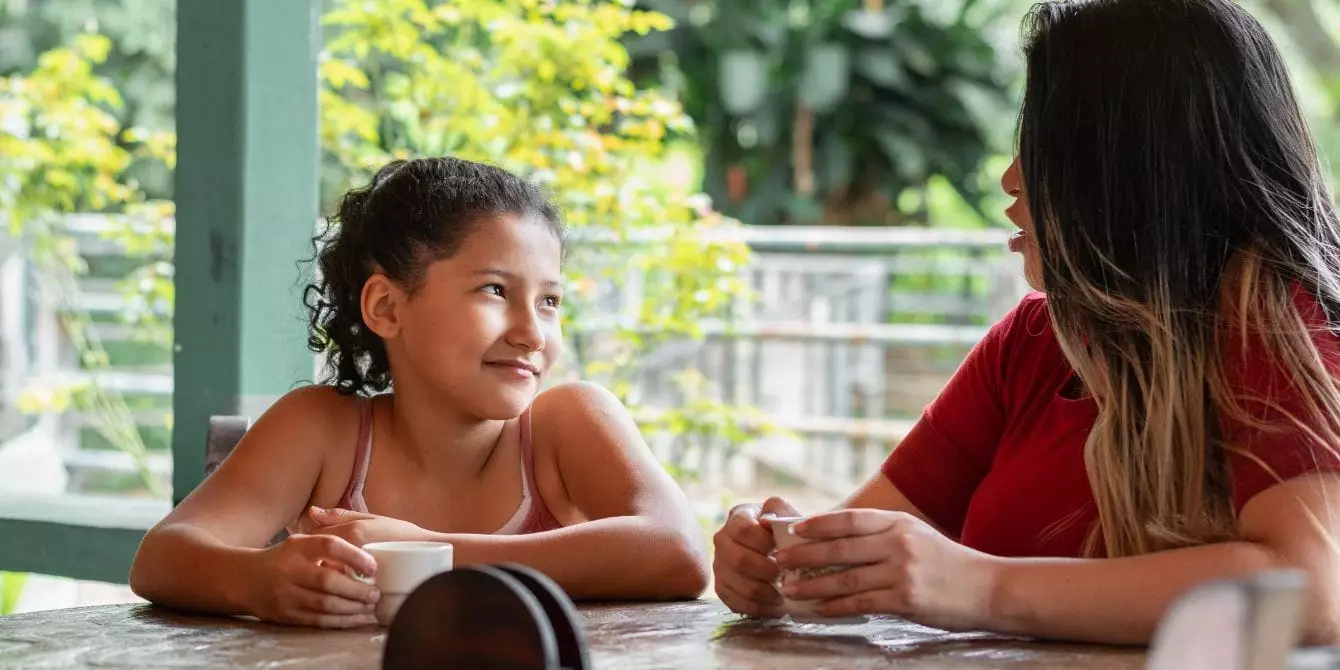As the election season unfolds, families are encountering an abundance of political discourse that can sometimes be challenging to navigate. With the spotlight on politicians’ careers, personal lives, and the broader societal climates, children may inevitably pick up on the tumultuous environment. This article discusses how to approach political discussions with children in a manner that is both accessible and enriching, fostering their understanding of democratic processes.
Children are naturally inquisitive and often come up with profound questions that can leave adults stumped. In the context of politics, these inquiries may arise from overheard conversations, news segments, or classroom discussions. It is crucial to engage with children based on their developmental stages.
For younger children, particularly preschoolers, responses should be straightforward and focused on the “who,” “what,” and “why” of political events. Using simple, concrete language helps them grasp the essence without becoming overwhelmed. As children progress into elementary school, explanations can evolve to include slightly more context but should still validate their inquiries. This approach encourages them to feel empowered to ask more, creating a reciprocal dialogue.
Tweens, typically aged 11 to 13, crave connection and relevance. Conversations should be brief but engaging, utilizing relatable examples that resonate with their experiences. As children transition to their teenage years, the complexity of their understanding expands significantly. They are more capable of articulating opinions and feelings, allowing for a deeper exchange. It is essential during these discussions to create an environment where they feel comfortable expressing their views without fear of judgment.
One of the most effective strategies for discussing politics with children is to prioritize listening. This is especially true for teenagers, who often wrestle with their developing identities and beliefs. When they share their thoughts, it is vital to respond with curiosity rather than judgment. Phrases like, “I’m interested in your perspective,” foster an open dialogue and make it clear that their opinions are valued.
Moreover, the media landscape today presents fragmented narratives to children, as they are frequently exposed to snippets of news, making it harder for them to piece together the full story. Parents should actively encourage follow-up inquiries after providing answers to ensure that children can express any lingering uncertainties or concerns. Questions like, “What else are you curious about?” invite further exploration and show that their thoughts matter.
Beyond the factual elements of political discussions, it is equally important to address the emotional undercurrents that can influence a child’s understanding of political dynamics. Kids may experience anxiety or confusion based on the conversations around them, leading to an emotional response that merits acknowledgment. Open-ended queries like, “Is there anything bothering you about what you’ve heard?” help create a safe space for children to articulate their feelings.
These emotional dialogues are just as significant as discussing the logistics of policies and candidates. Encouraging children to express their concerns, and validating those feelings, deepens their sense of security and trust in their ability to process challenging subjects.
As we approach election day, it’s essential for parents to reflect on the values they wish to instill in their children about civic engagement. Parents should consider questions such as: What principles surround governance and voting do we hold dear as a family? How can we share these with our children in a way that resonates with them? This self-reflection is crucial in establishing conversations that align with the family’s core beliefs while engaging children in discussions that feel relevant to their lives.
Introducing children to the concepts of civic duty, respect for different opinions, and the importance of informed decision-making can lay a strong foundation for future generations. Creating opportunities for family discussions about news stories or participating together in community events fosters engagement and awareness.
Ultimately, equipping children with the skills to think critically about political matters enables them to become informed citizens. Teaching them to navigate political landscapes and encouraging them to ask questions will promote a more robust understanding of the complexities surrounding governance. As they learn to articulate their viewpoints respectfully and engage in dialogue with others, they will also enhance their capacity for empathy and collaboration.
Discussing politics with children shouldn’t be avoided or rushed through. By fostering open communication, being mindful of their developmental stages, and engaging with their feelings, parents can demystify politics and empower their children to become active participants in their communities. Doing so not only strengthens familial bonds but also instills a sense of civic responsibility that is essential for the next generation.

